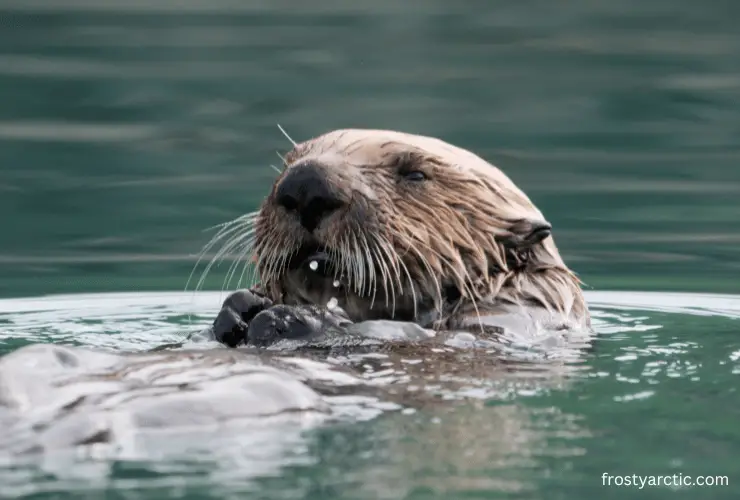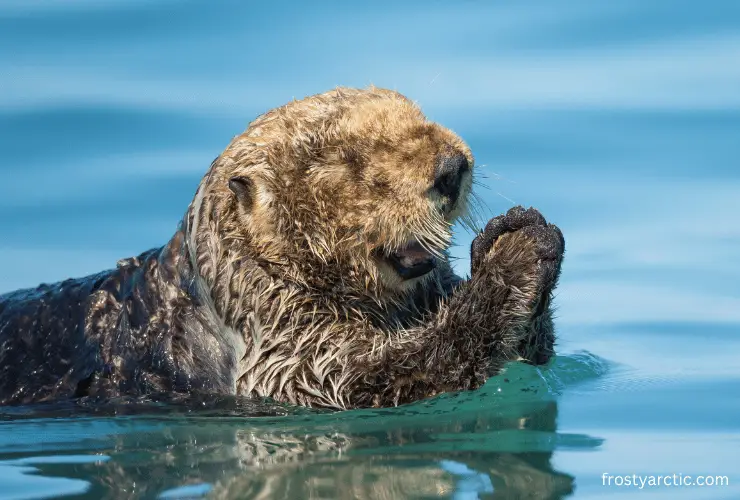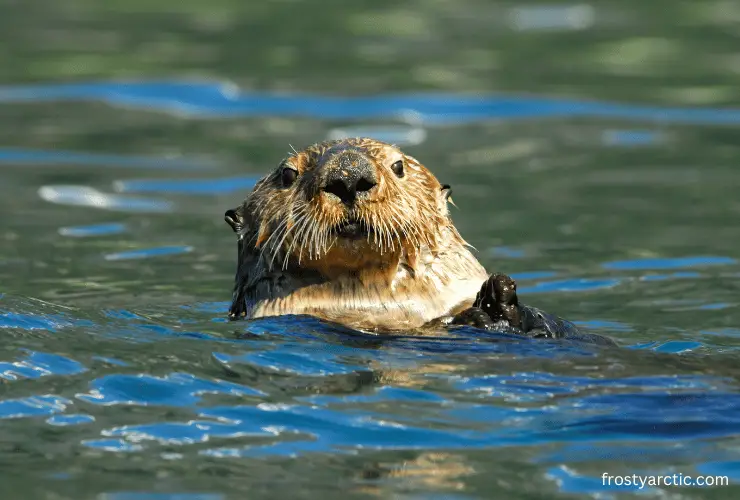Sea otters are technically edible but consuming them is generally not recommended. Their meat is typically tough, with an aroma that many find unpleasant. They carry parasites, potentially posing significant health threats to humans. Additionally, sea otters are legally protected in many regions as they are endangered, prohibiting their hunting.
“Are Sea Otters Edible?” — a question asked surprisingly often. Though the answer is yes, it’s highly discouraged for a variety of reasons.
Read this blog to explore all the reasons for prohibiting the consumption of sea otters. We’ll also elaborate on the taste and the legalities of hunting and eating sea otters.
Can Humans Eat Sea Otters? Is it Safe to Eat Sea Otters?

Humans are naturally omnivores – we can digest various foods, from plants to meats. This technically means we can consume sea otter meat. But while it’s possible, it’s not necessarily a good idea, as the safety and ethical implications of eating sea otters are significant.
Health Risks Associated with Eating Sea Otters
When discussing safety, we must consider both the health risks and potential legal consequences. Like many wild animals, sea otters can be hosts to various parasites that can risk human health.
One such pathogen is the potentially deadly parasite Toxoplasma gondii, as stated in a research paper published by “Frontiers in Marine Science.”
If the meat is not thoroughly cooked or treated, these parasites could end up in our bodies, leading to severe and sometimes life-threatening illnesses.
Legal Implications – Is it Legal to Hunt and Eat Sea Otters?
In addition to potential health risks, there are legal restrictions against hunting sea otters in many places. In the U.S., The Marine Mammal Protection Act safeguards these creatures, prohibiting their hunting except by certain indigenous groups for subsistence and craft.
Moreover, the Southern sea otter subspecies found along the coast of California are listed as threatened under the Endangered Species Act (ESA) of 1973, providing it with an additional level of protection.
Ethical Implications for Sea Otter Consumption
Beyond legality, there’s the ethical dimension. Sea otters are important creatures that help regulate the population of sea urchins. And if their population is left unchecked, it can cause significant damage to kelp forests, an important habitat for numerous marine creatures.
Also Read: River Otters Vs Sea Otters: All Differences Explained
As per a study in “Frontiers in Ecology and the Environment,” this ecological role is vital enough that disrupting otter populations could lead to widespread ecological imbalance.
Therefore, while humans can technically eat sea otters, it’s not generally safe or ethically advisable. The potential health risks, legal restrictions, and the vital ecological role of sea otters all point toward the need to protect these unique creatures rather than see them as food sources.
Is Sea Otter Meat Tasty? How Does It Smell?
The Taste and Texture of Sea Otter Meat

Like other wild game, sea otter meat is described as having a “gamey” taste. It’s a robust, rich, and earthy flavor. It is usually stronger and more complex than the taste of domesticated animals’ meat.
However, unlike most game meats, sea otters’ diet primarily consists of shellfish and other marine organisms, which may further influence the meat’s flavor profile, giving it a distinctly oceanic tang.
One of the reasons sea otter meat tastes different is its lean nature. Unlike many other animals we eat, sea otters do not have a rich fatty layer. Fat adds a lot to the flavor and juiciness of the meat. So the lack of it in sea otters may result in a tougher and less flavorful meal.
The Smell of Sea Otter Meat
As for the smell, it’s reported to be quite strong and unique. Some suggest that the scent is similar to that of other marine animals but with a sharper, more intense aroma. The meat’s smell might be less pleasant to those unfamiliar with it, potentially contributing to its lack of popularity as a food source.
FAQs
Q: Do Alaskans eat sea otters?
A: Historically, certain Alaskan native communities have hunted sea otters for subsistence, using their fur for warmth and occasionally consuming their meat. However, this practice has generally decreased in recent years due to changing lifestyles and regulations.
Q: Can humans eat sea otters in Alaska?
A: As per U.S. federal law, hunting sea otters is mostly prohibited. However, an exception is made for Alaskan Natives, who are legally allowed to hunt sea otters for subsistence or create handicrafts or clothing, practices rooted in their cultural heritage.
Despite this allowance, consuming sea otter meat is rare due to the reasons outlined earlier concerning health risks, taste, and nutritional composition.
Conclusion
While it’s technically possible to eat sea otters, doing so is generally discouraged. Their meat, marked by a strong smell and a lean composition due to lack of substantial fat, does not make for a common or preferred human food source. Additionally, sea otters can carry parasites and diseases, like Toxoplasma gondii, posing health risks if consumed.
Furthermore, legal restrictions largely prohibit their hunting. Finally, the crucial ecological role of sea otters, especially in maintaining healthy kelp forests, underscores the importance of their preservation.
Intriguingly, despite these factors, sea otters were a food source in some ancient coastal cultures, highlighting the varied diets of our ancestors.



1 thought on “Are Sea Otters Edible?”